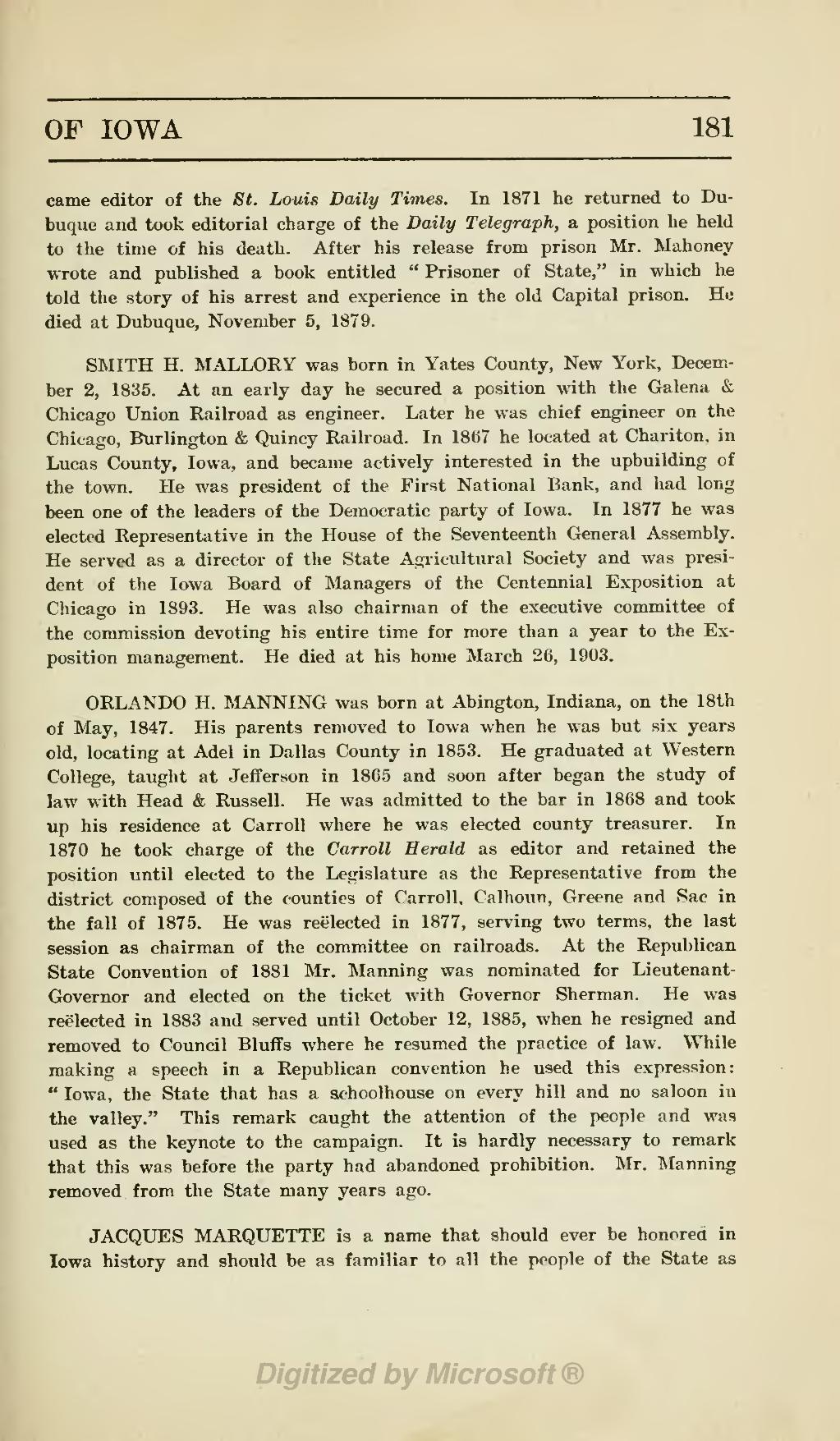came editor of the St. Louis Daily Times. In 1871 he returned to Dubuque and took editorial charge of the Daily Telegraph, a position he held to the time of his death. After his release from prison Mr. Mahoney wrote and published a book entitled “Prisoner of State,” in which he told the story of his arrest and experience in the old Capital prison. Ho died at Dubuque, November 5, 1879.
SMITH H. MALLORY was born in Yates County, New York, December 2, 1835. At an early day he secured a position with the Galena & Chicago Union Railroad as engineer. Later he was chief engineer on the Chicago, Burlington & Quincy Railroad. In 1807 he located at Chariton, in Lucas County, Iowa, and became actively interested in the upbuilding of the town. He was president of the First National Bank, and had long been one of the leaders of the Democratic party of Iowa. In 1877 he was elected Representative in the House of the Seventeenth General Assembly. He served as a director of the State Agricultural Society and was president of the Iowa Board of Managers of the Centennial Exposition at Chicago in 1893. He was also chairman of the executive committee of the commission devoting his entire time for more than a year to the Exposition management. He died at his home March 26, 1903.
ORLANDO H. MANNING was born at Abington, Indiana, on the 18th of May, 1847. His parents removed to Iowa when he was but six years old, locating at Adel in Dallas County in 1853. He graduated at Western College, taught at Jefferson in 1865 and soon after began the study of law with Head & Russell. He was admitted to the bar in 1868 and took up his residence at Carroll where he was elected county treasurer. In 1870 he took charge of the Carroll Herald as editor and retained the position until elected to the Legislature as the Representative from the district composed of the counties of Carroll, Calhoun, Greene and Sac in the fall of 1875. He was reëlected in 1877, serving two terms, the last session as chairman of the committee on railroads. At the Republican State Convention of 1881 Mr. Manning was nominated for Lieutenant-Governor and elected on the ticket with Governor Sherman. He was reëlected in 1883 and served until October 12, 1885, when he resigned and removed to Council Bluffs where he resumed the practice of law. While making a speech in a Republican convention he used this expression: “Iowa, the State that has a schoolhouse on every hill and no saloon in the valley.” This remark caught the attention of the people and was used as the keynote to the campaign. It is hardly necessary to remark that this was before the party had abandoned prohibition. Mr. Manning removed from the State many years ago.
JACQUES MARQUETTE is a name that should ever be honored in Iowa history and should be as familiar to all the people of the State as
